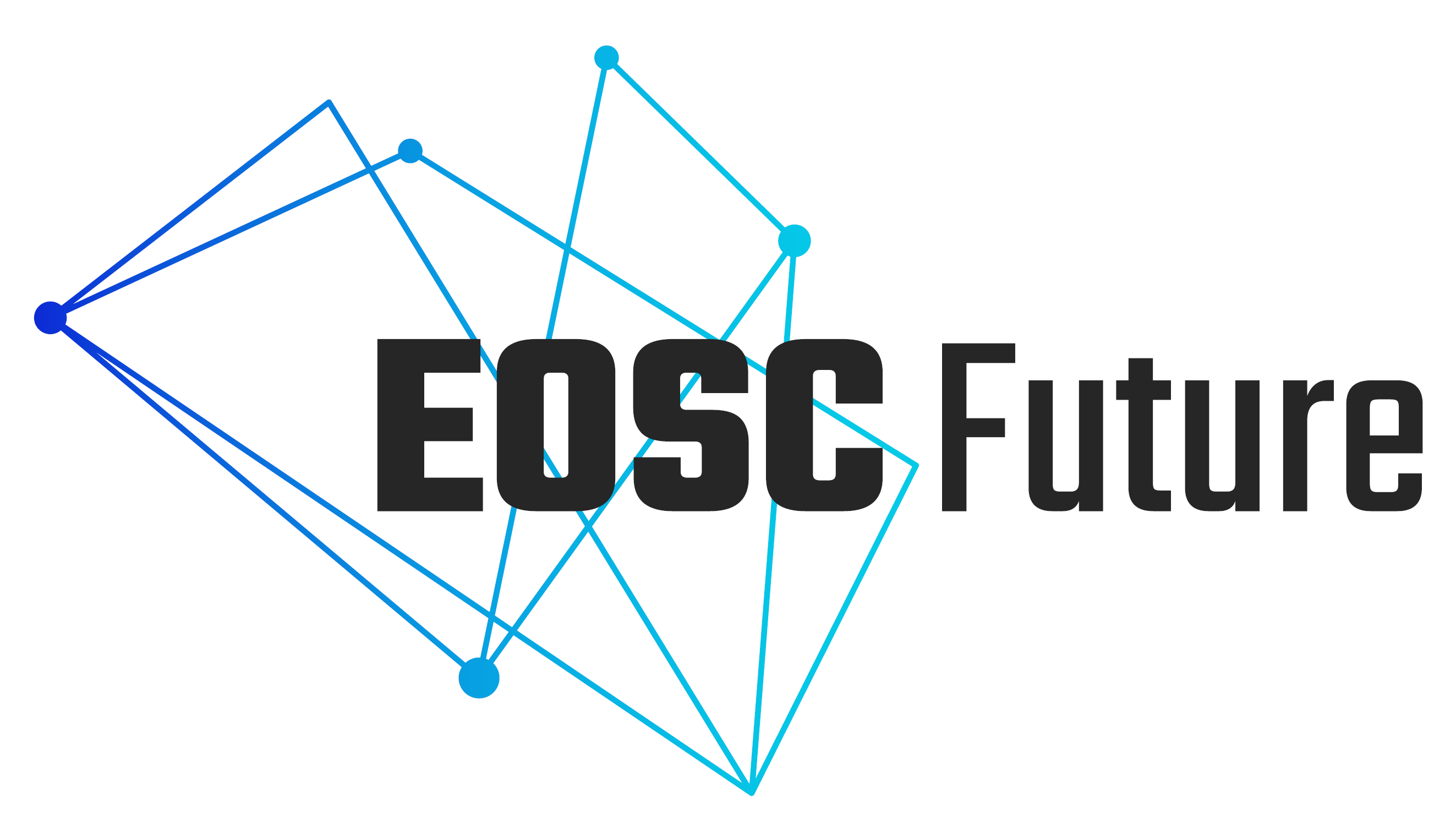This learning path provides the basics of how to become an accelerator of EOSC.
An EOSC accelerator is anyone who wishes to serve as champion of EOSC in their own institution or research community. This pathway is designed to equip researchers, data curators or research support staff with the knowledge to:
- Raise visibility of EOSC,
- Initiate discussions and build capacity around EOSC,
- Encourage institutions to integrate EOSC services and resources,
- Direct interested individuals to services and resources,
- Understand and use the EOSC Portal.
This Learning Path provides the basics of how to become a research practitioner of EOSC.
An EOSC research practitioner is a researcher who makes use of EOSC services and resources in their research. This pathway is designed to equip researchers with the knowledge to:
- Understand the structure of EOSC and how to make use of the services and resources,
- Understand and use the EOSC Portal,
- Design and execute workflows,
- Understand ethical and legal issues associated with EOSC use, including GDPR.
This Learning Path provides the basics of how to become a Resource Provider of EOSC.
An EOSC resource provider is defined as a service or content provider that will contribute to develop EOSC into a rich environment of resources for research. This pathway is designed for EOSC providers to guide them through the onboarding process with the knowledge to:
- Handle the services and resources onboarding process and the RoP,
- Understand the EOSC Interoperability Framework,
- Achieve an increased visibility of their services on a cross-domain interoperable platform,
- Understand how to make their services and data FAIR, i.e. known, discoverable, accessible, interoperable and re-usable,
- Create efficient documentation and usage instructions for services, to support end users.
This Learning Path provides the basics of how to become an Institutional Facilitator of EOSC.
An EOSC Institutional Facilitator is defined as an individual that actively encourages the use of EOSC resources amongst institutional staff. Facilitators can include librarians, data stewards, research support staff, institutional managers and policy makers. This pathway is designed for EOSC promoters within the institution and will equip them with the knowledge to:
- Explain EOSC to staff and students,
- Understand the EOSC and EOSC Portal,
- Encourage institutions to integrate EOSC services and resources,
- Encourage institutions to integrate their services and resources in EOSC,
- Understand the relationships between EOSC, national research structures, funders, private organisations and industry.

This Learning Path provides the basics of how to become a trainer of EOSC - from knowledge of what EOSC is to legal and ethical issues and pedagogy.
An EOSC user trainer is an educator who is either providing training on EOSC or wishes to incorporate aspects of EOSC into their training. This pathway is designed to equip trainers with the knowledge to:
- Confidently provide an overview of EOSC,
- Explain the EOSC Portal,
- Find and use existing EOSC training resources for their own training needs,
- Create and share new EOSC training materials and provide engaging synchronous/asynchronous training,
- Introduce legal and ethical issues pertaining to EOSC.